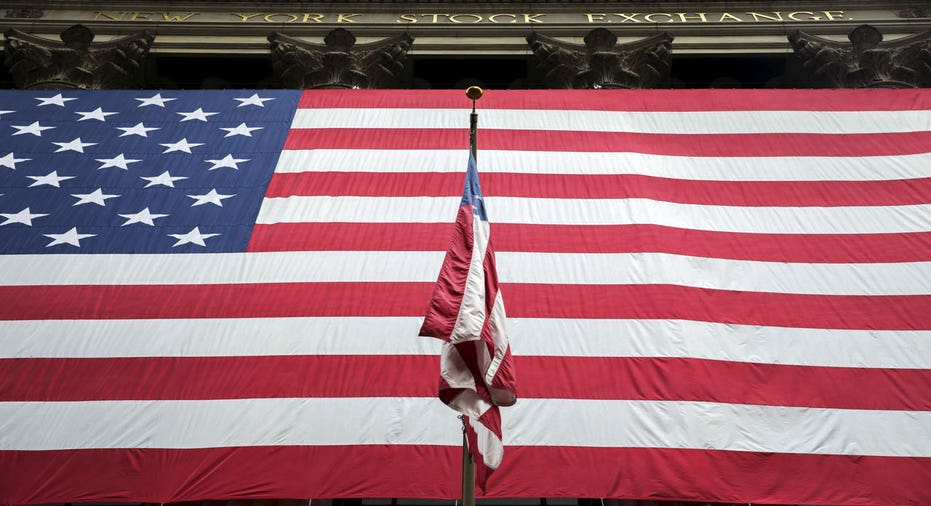U.S. Economic Growth: The Overriding Issue for the Next Presidential Debate

America’s business leaders believe the number one domestic issue facing the United States is a U.S. economy performing far below its full potential, creating a multitude of difficulties for our citizens.
With journalists from the FOX Business Network and The Wall Street Journal moderating, the Republican presidential debate in Milwaukee could represent the best opportunity in this campaign for candidates to lay out their visions for reviving U.S. economic growth.
Indeed, at every presidential debate to come, candidates need to demonstrate they understand the importance of growth and articulate a serious and detailed vision for restoring it.
We have a long way to go. The U.S. economy has been underperforming since the end of the recession in 2007, making it slowest recovery since World War II; annual real GDP growth averaged only about 2.2 percent over that period. More recently, the Commerce Department estimated annualized GDP growth of just 1.5 percent for the third quarter of 2015.
The economy does continue to add jobs every month, and the unemployment rate fell to 5 percent in October. Yet the unemployment rate for young people ages 16-19 stood at 13.8 percent last month, nearly triple the national rate.
Just as troubling, the labor participation rate was just 62.4 percent in October. That’s the lowest percentage of people in the workforce since 1977! Quite simply, too many people have given up looking for employment, or find themselves trapped in part-time jobs that make it difficult to pay the bills.
Importantly, workers in every size and type of business are being hurt. Look at small business:
A recent study by the Brookings Institution found that the U.S. economy is becoming less entrepreneurial over time, putting a drag on job creation. In 2008, for the first time ever, fewer businesses were created than those closing up shop. If this decline in “business dynamism” continues, Brookings concluded, “[it] implies a continuation of slow growth for the indefinite future.”
Economic growth can cure many ills. Are budget deficits are a concern? The Congressional Budget Office reports that if the GDP grew by a sustained rate of a full percentage point more annually, budget deficits would decline by $3 trillion over a decade.
Without stronger growth, wages will not grow. The 2015 Assets and Opportunity Scorecard from the CFED – a group on focused low- and middle-income earners – reports that average U.S. household income has been stuck at $49,808 for three years in a row and the share of jobs that are in low-wage occupations has risen nationwide, from 21 percent in 2012 to 25 percent in 2013.
Rather than fixing the problem, some cite economic troubles in China and Europe as the major cause of America’s economic doldrums.
The fact is, Beijing does not set U.S. tax policy. (CEOs believe our antiquated and anti-competitive business tax system is the top obstacle to the investment that drives growth.) Brussels is not responsible for the wrong-headed regulatory policies that discourage entrepreneurship. Berlin does not decide whether we invest in our roads, bridges or ports.
It’s up to America’s leaders to act, to make the decisions that can restore growth and the prosperity that growth produces. BRT CEOs believe they should start by modernizing our antiquated and anti-competitive business tax system, the top obstacle to the private-sector investment that drives the economy.
But that’s just the start. Earlier this year, Business Roundtable released its plan for revitalizing the U.S. economy, Achieving America’s Full Potential: More Work, Greater Investment, Unlimited Opportunity, laying out strategies to accomplish that goal. They included:
- Maintaining Fiscal Stability
- Enacting Pro-Growth Tax Reform
- Expanding U.S. Trade
- Enacting Immigration Reform
- Investing in Physical & Digital Infrastructure
- Adopting a Smarter Approach to Regulation
Slow economic growth harms our country, discourages business investment and makes life more difficult for too many Americans.
With the right leadership enacting the right policies, we can do better. When the Republican candidates take the stage at the Milwaukee Theatre – and at every GOP and Democratic presidential debate to come – economic growth should be front and center.
The challenge from America’s business leaders to the candidates is this: Explain to voters growth matters and then tell the American people how your leadership can help us achieve it.



















